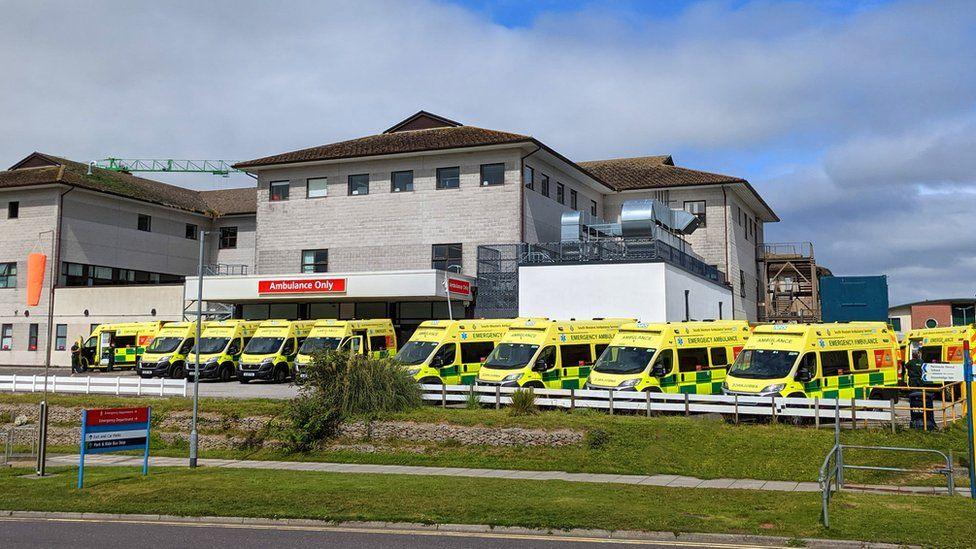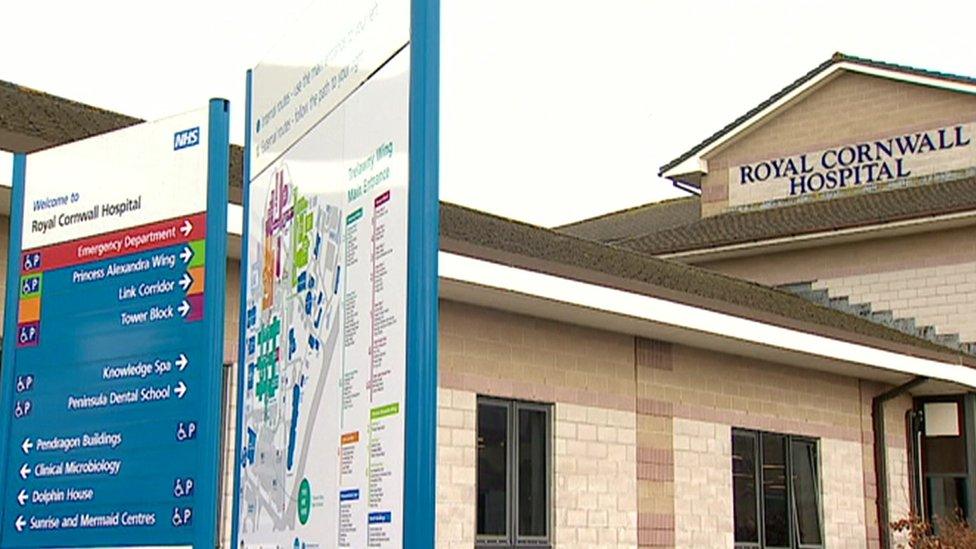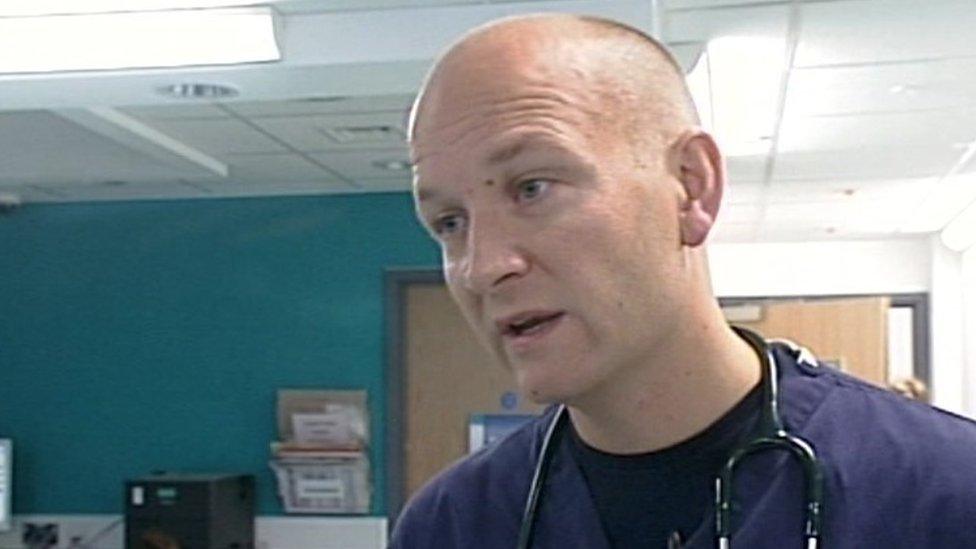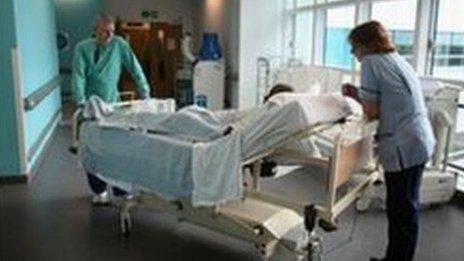Bed blocking hits record high in Cornish hospitals
- Published

The Royal Cornwall Hospital has been under extreme pressure for some time
Bed blocking in Cornish hospitals has reached a record high, a new report has revealed.
Last week in Cornwall, there were 243 people waiting to be discharged from hospital who couldn't leave due to a lack of care services available.
The latest figures are included in a report on plans to cut the number of people waiting for surgery.
The backlog means delays for people attending the emergency department, and awaiting routine operations.
The report states: "On Thursday 14 July 2022 it was reported that across CFT [Cornwall Partnership Foundation Trust] and RCHT [Royal Cornwall Hospitals Trust] there were 243 patients who required care in another setting which is the highest number ever known in the Cornwall Health and Social Care system."
The Royal Cornwall Hospital has been reporting for some time that beds are being blocked by patients who are medically fit to be discharged but have no care packages available.
Royal Cornwall Hospitals NHS Trust (RCHT) said by the end of July, there should no longer be anyone in Cornwall waiting for more than two years for treatment, adding it was working to cut the number of people waiting 18 months to zero by March 2023, as reported by the Local Democracy Reporting Service.
In order to help reduce the number of people waiting for treatment, the trust needs to cut the number of people who are stuck in hospital despite being ready for discharge.
To try and reduce the number of people waiting for surgery, RCHT is also increasing overall capacity by providing Saturday and Sunday operating, and there are also plans to increase bed capacity at the Royal Cornwall Hospital in Truro.
'Urgent interventions needed'
In a separate report that went to the council's overview and scrutiny committee, hospital bosses admitted the operational pressures currently being faced by the NHS in Cornwall were linked to the number of people waiting to be discharged from hospital.
Secretary of State for Health and Social Care, Steve Barclay, announced in the House of Commons earlier this week that NHS England bosses had written to NHS trusts, ambulance trusts, and integrated care boards, setting out some of the "urgent interventions" needed, focused on improving ambulance handovers and increased hospital bed capacity.
Mr Barclay added: "In addition to the immediate steps to mitigate the pressures on 999 calls, ambulance services, and adult social care, we will keep building on our operational response with particular attention to discharge, and expanding on our pockets of best practice.
"This is particularly pertinent given the current levels of Covid which continue to rise."

Follow BBC News South West on Twitter, external, Facebook, external and Instagram, external. Send your story ideas to spotlight@bbc.co.uk.
- Published8 July 2022

- Published5 November 2015

- Published8 October 2013

- Published25 February 2013
